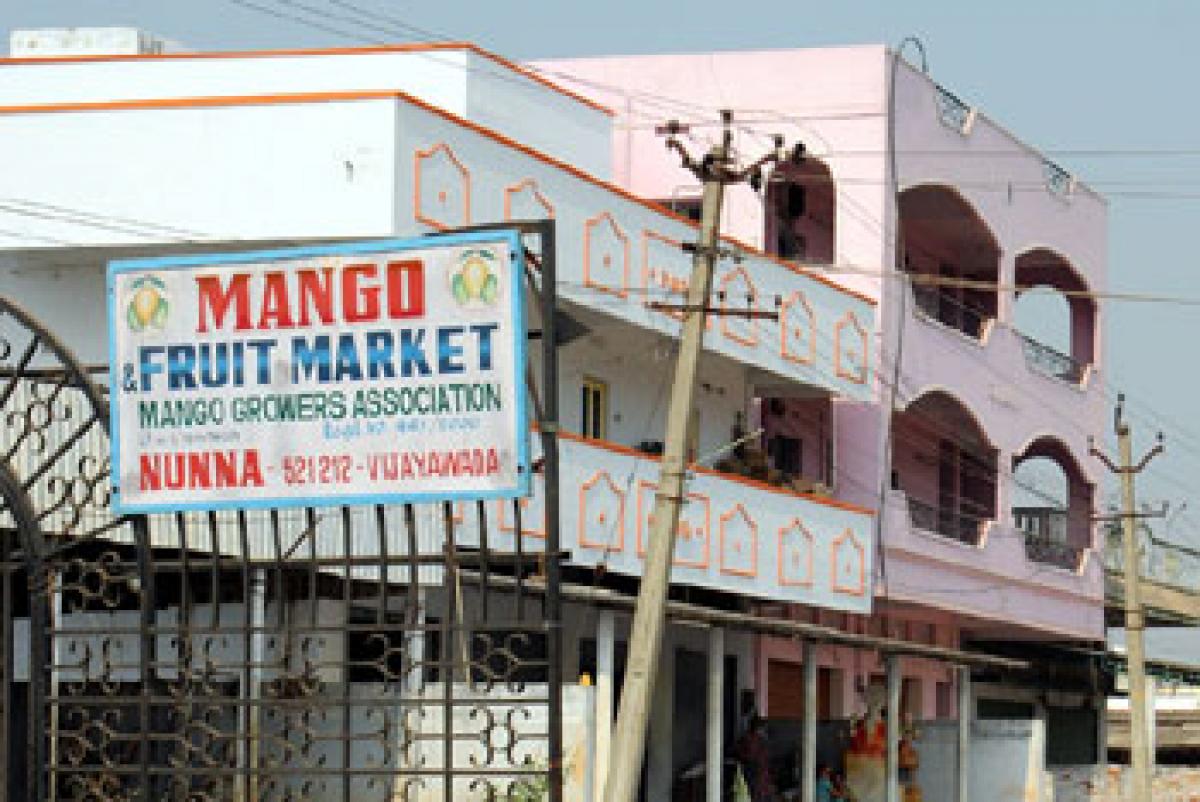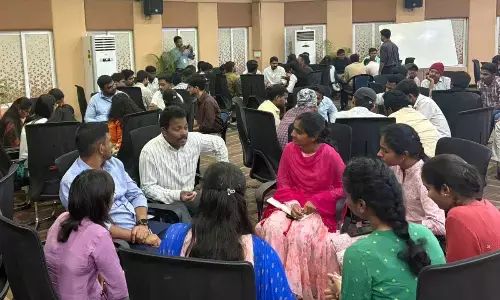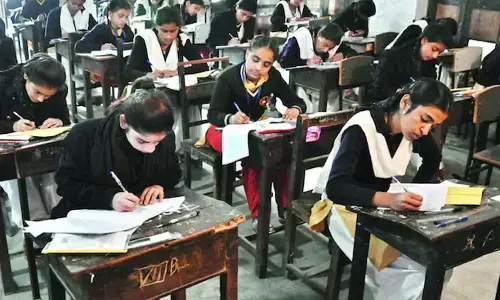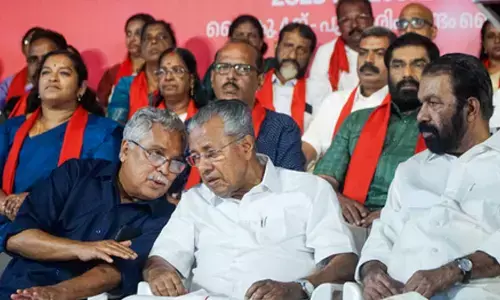No aroma of mango at Nunna

Carbide fear and late flowering will spell a doom this summer season on the traders of Nunna mango market, which is one of the biggest in India. Though 28 days completed in March and the summer is picking up in Vijayawada city and other parts of Krishna district, there are no signs of trading activity in the Nunna mango market.
* Late flowering, carbide fear affect the trading in Nunna mango market
* Traders reluctant to start the business
Vijayawada: Carbide fear and late flowering will spell a doom this summer season on the traders of Nunna mango market, which is one of the biggest in India. Though 28 days completed in March and the summer is picking up in Vijayawada city and other parts of Krishna district, there are no signs of trading activity in the Nunna mango market.
Nunna mango market is very famous for export of Banganapalli, Totapuri and juicy varieties of mangoes. North Indian traders every year visit the market and buy thousands of tons of mangoes. Average mango sale per day is 2,000 tons in summer. However, not a single ton has been sold in the Nunna market this season as there is no stock. Usually, business starts in the first week of March every year.
Traders habituated to use carbide for artificial speedy ripening of mangoes. The ripening will give attractive colour to the fruits. People prefer buying mangoes, which has attractive colour and shape.
Now the Andhra Pradesh Government is determined to check artificial ripening of fruits with carbide. The officials are levying penalty up to Rs 1 lakh and giving stern warning that the traders will get imprisonment up to six months for using carbide. All these factors have huge impact on the Nunna mango market in Vijayawada.
Most of the traders have already stopped using carbide for ripening of pineapple, banana, grapes and papaya. Now, mango traders are also seems to follow them.
N Chiranjeevi, the secretary of the Fruit Merchants Association at mango market, said now the summer was very hot. There was no need to use carbide for artificial ripening of mangoes. He said carbide is used when the mango crop comes very early by March or the first week of April. However, the flowering has been delayed by nearly one month this season and there will be no need to use carbide. He said the fruit itself ripens due to hot weather before harvested.
Nearly 80 shops at Nunna mango market are occupied by traders by the end of March every year. But, this year there are no signs of trading activity. K Ramakrishna, a mango trader in Nunna market said that he does not like to take risk and avoid using carbide.
Meanwhile, the Delhi traders are not showing interest to buy mangoes from Krishna district this year. Manvinder Kumar alias Billu, a Delhi trader and important customer said that the impact of carbide is very huge in Andhra Pradesh this year. He is associated with mango business for more than 40 years and exports to North Indian states every summer.
He said Banginapalli varieties are very delicious and liked by North Indians. He said Totapuri variety is used for making mango juice and purchased by juice companies and worried how to transport the mangoes in insulated containers.
Insulated vans are safer compared to other trucks for transportation of mangoes in summer. He said the mango price will shoot up if exported in insulated vehicles. He said the mango lovers in North India could miss Banginaalli variety this season as the crop yield is very low and the prices will be much higher this year. He said the biggest effect of carbide is it gives beautiful colour to the mangoes and customers are also attracted by it.
Md Ameen










